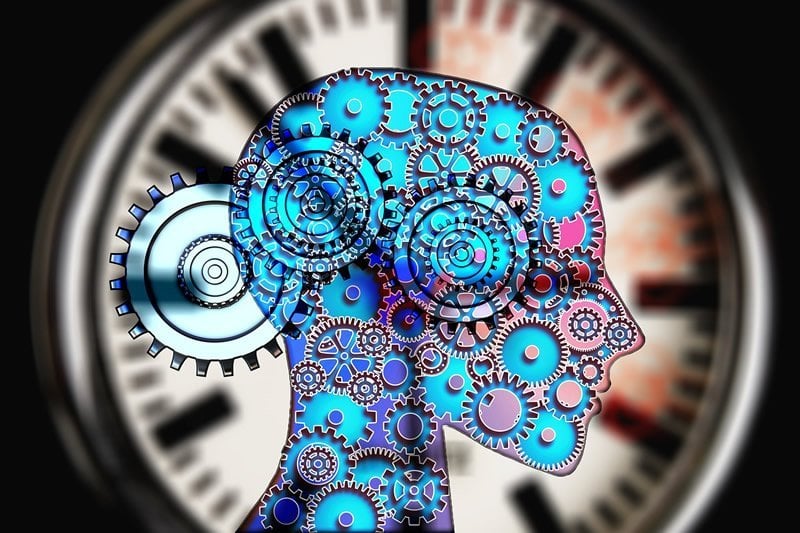Summary: Researchers analyzed the relationship between reward and effort in achieving goals and identified two critical stages in the decision-making process.
Source: Queen Mary University London
Research led by scientists at Queen Mary University of London has provided new insights into why people often make unrealistic plans that are doomed to fail.
The study, published in the journal Behavioural Brain Research, analysed the complex relationship between reward and effort in achieving goals, and identified two critical stages in the decision-making process.
The researchers found that when people first decide what to do they are motivated by rewards. However, once they begin to put plans into action, their focus turns to the difficulty of the effort they need to put in.
They suggest the key to achievable aims is to consider the effort needed when deciding what to do, and then remembering to focus on the rewards once the time comes to put the effort in.
To investigate the relationship between effort and reward, the research team designed experiments involving two different forms of effort, physical and mental.
Physical effort was measured by the action of squeezing a joystick whilst the ability for participants to solve simple mathematical equations tested mental effort.
Study participants were presented with different options that combined either high or low effort with high or low financial reward, and asked to select which one to pursue.
The scientists found that when selecting options participants were guided by the level of financial reward offered, but on execution of the task their performance was determined by the actual amount of effort they needed to exert.
The team observed that the results were similar for both the physical and mental effort-based experiments.
Dr Agata Ludwiczak, a Research Fellow from Queen Mary University of London and lead author of the study, said: “Common sense suggests the amount of effort we put into a task directly relates to the level of reward we expect in return. However, building psychological and economic evidence indicates that often high rewards are not enough to ensure people put in the effort they need to achieve their targets.

“We have found that there isn’t a direct relationship between the amount of reward that is at stake and the amount of effort people actually put in. This is because when we make choices about what effort to put in, we are motivated by the rewards we expect to get back. But at the point at which we come to actually do what we had said we would do, we focus on the level of effort we have to actually put in rather than the rewards we hoped we would get.”
Dr Osman, Reader in Experimental Psychology at Queen Mary, said: “If we aren’t careful our plans can be informed by unrealistic expectations because we pay too much attention to the rewards. Then when we face the reality of our choices, we realise the effort is too much and give up. For example, getting up early to exercise for a new healthy lifestyle might seem like a good choice when we decide on our new year’s resolutions, but once your alarm goes off on a cold January morning, the rewards aren’t enough to get you up and out of bed.”
Source:
Queen Mary University London
Media Contacts:
Sophie McLachlan – Queen Mary University London
Image Source:
The image is in the public domain.
Original Research: Open access
“Redefining the Relationship Between Effort and Reward: Choice-Execution Model of Effort-Based Decisions”. A. Ludwiczak, M Osman, M Jahanshahi.
Behavioural Brain Research doi:10.1016/j.bbr.2020.112474.
Abstract
Redefining the Relationship Between Effort and Reward: Choice-Execution Model of Effort-Based Decisionsy
Neuroscientific studies reliably demonstrate that rewards play a crucial role in guiding our choices when confronted with different effortful actions we could make. At the same time, psychological and economic research shows that effort we exert is not reliably predicted by the rewards we end up receiving. Why the mismatch between the two lines of evidence? Inspired by neuroscientific literature, we argue that value-based models of decision-making expose the complexity of the relationship between effort and reward, which changes between two crucial stages of the effort-based decision making process: Choice (i.e. action selection) and Execution (i.e. action execution involving actual effort exertion). To test this assumption, in the present study we set up two experiments (E1: N = 72, E2: N = 87), using a typical neuroscientific effort-based decision-making task. The findings of these experiments reveal that when making prospective choices, rewards do guide the level of effort people are prepared to exert, consistent with typical findings from Neuroscience. At a later stage, during execution of effortful actions, performance is determined by the actual amount of effort that needs to be exerted, consistent with psychological and behavioral economic research. We use the model we tested and the findings we generated to highlight critical new insights into effort-reward relationship, bringing different literatures together in the context of questions regarding what effort its, and the role that values play.






